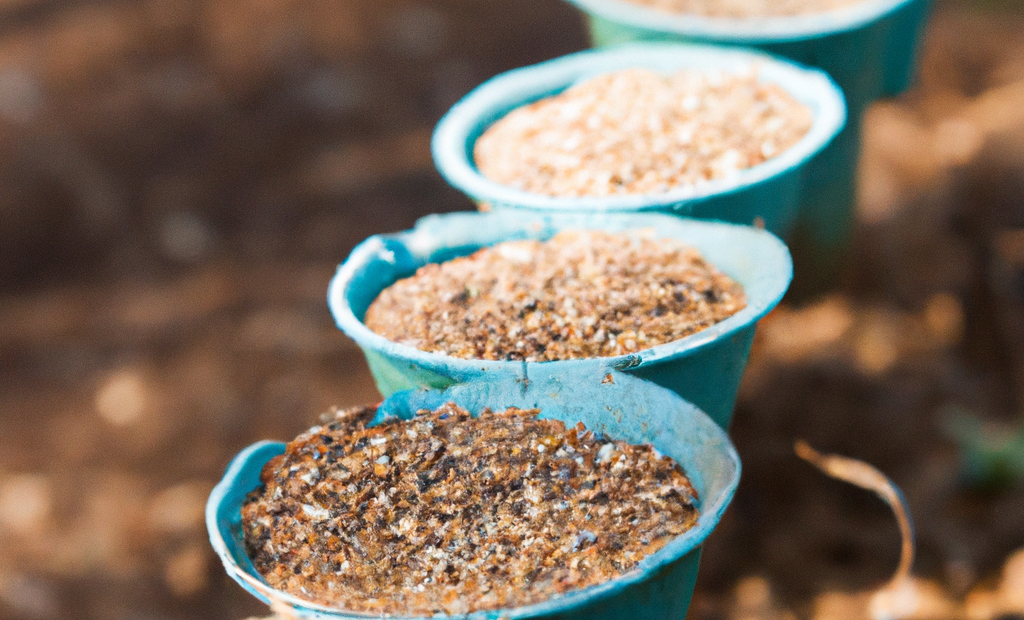Biofertilizers play a crucial role in organic farming, offering a sustainable alternative to synthetic fertilizers. They improve soil quality and plant growth, conserve biodiversity and promote a healthy ecosystem. Organic fertilizers also provide similar benefits, increasing crop productivity and reducing dependence on chemicals. Both contribute to greener and more environmentally friendly agriculture.
In the current era of environmental awareness and sustainability, organic farming has gained great relevance. One of the highlights of this trend is the use of organic fertilizers, particularly biofertilizers, which are transforming the face of agriculture. This article will delve into the fascinating world of these innovations in agricultural products and their impact on local fauna. We will address topics such as the new wave of biofertilizers in organic farming, the positive role that organic fertilizers play in the development and protection of local fauna, and how these products are revolutionizing traditional agricultural practices.
- 1. "Discovering Biofertilizers: The New Wave in Organic Agriculture"
- 2. "The Positive Impact of Organic Fertilizers on Local Fauna"
- 3. "Products for Agriculture: Innovations in Organic Fertilizers"
- 4. "How Organic Fertilizers are Changing the Face of Organic Farming"
1. "Discovering Biofertilizers: The New Wave in Organic Agriculture"
Biofertilizers represent the new wave in organic farming, offering a sustainable and wildlife-friendly alternative to traditional fertilizers. These agricultural products are created from living organisms that enrich the soil with essential nutrients, improving soil fertility and productivity without the harmful environmental effects of chemical fertilizers. Biofertilizers not only promote healthy plant growth, but also improve the quality of the soil and, ultimately, the food we consume. In addition, they are a key tool for the conservation of biodiversity, since they do not cause harm to fauna and contribute to maintaining the health of the ecosystem. The use of biofertilizers in organic farming is a step towards a greener and more sustainable future.
2. "The Positive Impact of Organic Fertilizers on Local Fauna"
Organic fertilizers, used in organic farming, have a significant positive impact on local fauna. Being composed of natural and biodegradable materials, these biofertilizers do not contain the harmful chemicals present in synthetic fertilizers that can harm local flora and fauna. On the contrary, by nourishing the soil with organic agricultural products, a healthy and balanced ecosystem is fostered where wildlife can thrive. Beneficial insects, such as bees and other pollinators, are attracted to healthy crops that are nourished by these fertilizers. Other animals, such as birds and mammals, also benefit indirectly from having a healthier habitat and a more abundant food source. In summary, the use of organic fertilizers in organic farming has a positive impact on biodiversity and the general health of local fauna.
3. "Products for Agriculture: Innovations in Organic Fertilizers"
The world of agricultural products is experiencing a radical change thanks to innovations in organic fertilizers. These fertilizers, also known as biofertilizers, are a sustainable and eco-friendly alternative to traditional synthetic fertilizers. Biofertilizers not only nourish the soil, but also improve its quality and structure, promoting a healthy and sustainable growth cycle for plants. In the context of organic farming, where the negative impact on the environment is sought to be minimized, organic fertilizers are an increasingly popular option. With the use of biofertilizers, farmers can reduce their dependence on chemicals, contributing to greener and more sustainable agriculture.
4. "How Organic Fertilizers are Changing the Face of Organic Farming"
Organic fertilizers are revolutionizing organic farming, ushering in an era of sustainable and environmentally friendly agricultural practices. As a source of natural nutrients, these fertilizers, also known as biofertilizers, help improve soil health, increase crop productivity and reduce dependence on synthetic chemicals. Agricultural products are now increasingly organic, which preserves biodiversity and reduces soil and water pollution. Organic fertilizers are the key to efficient and sustainable ecological agriculture, offering a viable option to meet the challenges of food security and protect the health of fauna and flora. Therefore, they are changing the face of organic farming, making our agriculture a greener and more planet-friendly practice.
"In short, innovation in organic fertilizers and biofertilizers is revolutionizing organic farming. These agricultural products are not only improving the health and productivity of farmland, but are also generating a positive impact on local wildlife. The future of sustainable agriculture rests on the adoption of these innovative agricultural practices, which respect natural balance and encourage biodiversity. As we continue to discover and refine these techniques, we can expect a transformative change in the face of organic farming, with benefits both. for the environment as well as for farmers and consumers."


